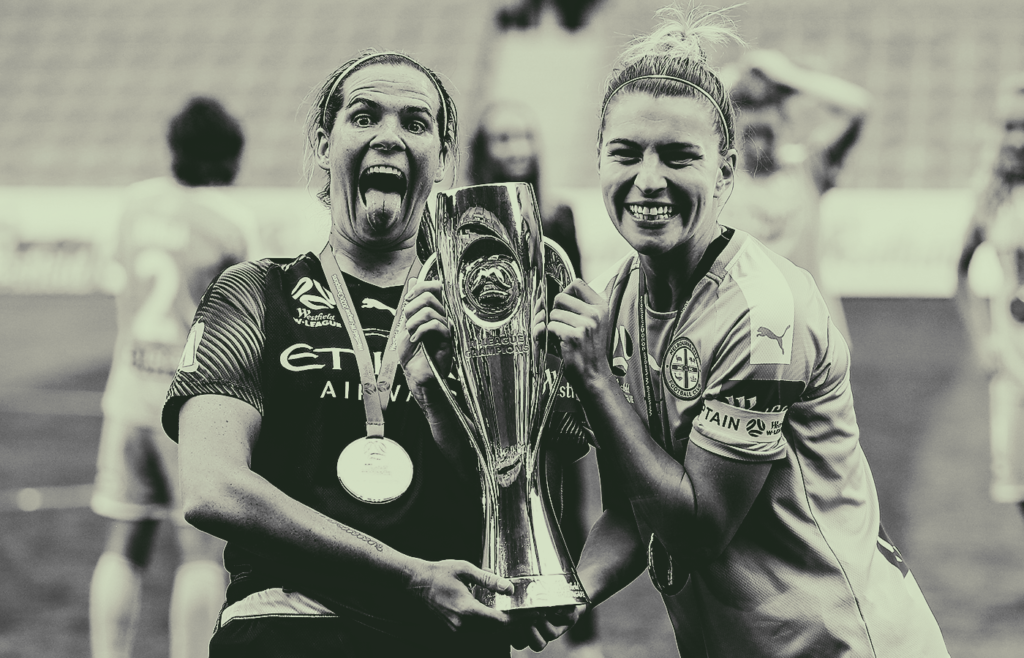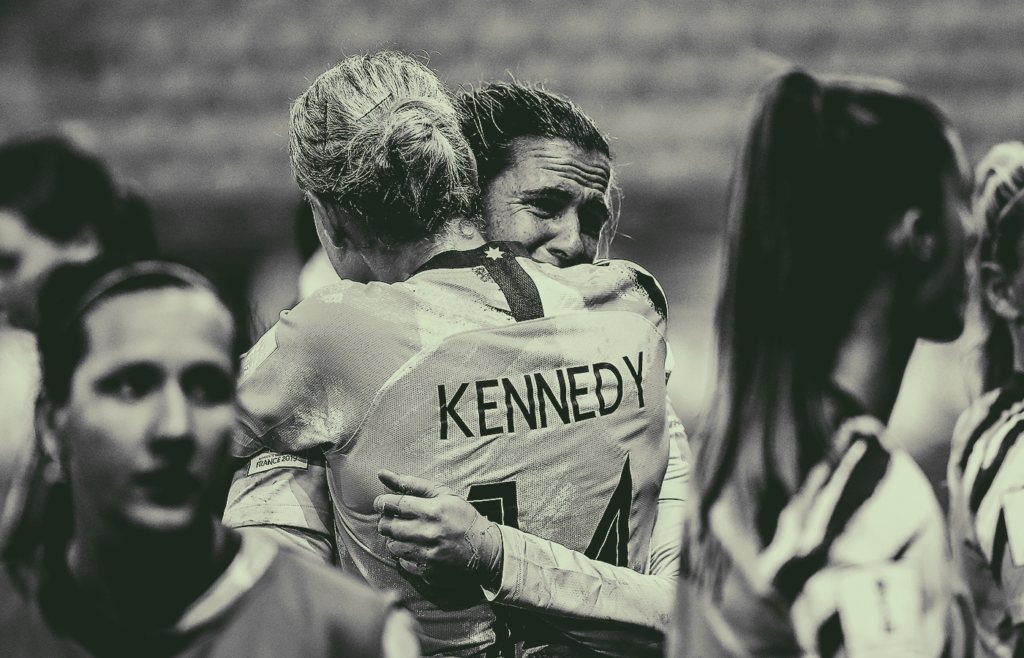It’s been a whirlwind month for Matildas and Melbourne City goalkeeper Lydia Williams but, despite the postponement and the challenges associated with COVID-19, she’s trying to find the positives as she looks ahead to a newly rescheduled Tokyo 2020 and look after her and her fellow player’s wellbeing.
On March 18, Williams was between the posts as her City side capped off a season for the ages, downing Sydney FC 1-0 behind-closed-doors in the W-League Grand Final at AAMI Park to secure an undefeated season and the club’s fourth W-League crown in five years.
At the time, even though it was looking increasingly unlikely in the COVID-19 affected near-term, Williams had highlighted the potential of exploring becoming the latest Matilda to move to Europe in coming and had the 2020 Olympics firmly in her sights.

However, the imposition of travel restrictions and strict quarantining measures by global governments in the face of coronavirus put paid to any thoughts of a rapid European oddest.
Days later, despite the best efforts of the Japanese government, the decision to postpone the Games of the XXXII Olympiad was undertaken on March 24; the first time in the history of the modern Olympics that the games have postponed for reasons other than war.
It was a stark reminder of the unprecedented manner in which COVID-19 has brought life as we know it to a grinding halt.
“I don’t think you ever really plan to be in something like this,” Williams, now bunkered down in Melbourne, told Footballer’s Voice.
“You don’t ever think about yourself in that position. I think it’s caught everyone by surprise and everyone’s kind of… no one really knows what the right answer is, since that’s not really happened in most of our lifetimes. So… yeah… it’s an interesting one.
“It’s definitely heartbreaking to see how much devastation that’s caused. But, you know, the fact that if we can all stay positive throughout it, I think that’s going to help us on the other side of it.”
The postponement of the Olympics represents a bitter blow to Williams who, at 31-years-old, could perhaps be taking part in her last Olympics when the tournament eventually commences in its new host year of 2021.
The Matildas will be looking to record a slightly happier Olympic campaign than their last time out when, after a two-Games absence, they were eliminated in heartbreaking fashion in the quarterfinals of the 2016 tournament in Rio, after a penalty shootout loss against the host nation.

They punched their tickets for Tokyo in early March – one of the last international games played before the international footballing calendar was suspended – by defeating Vietnam in 2-1.
Thankfully, despite the Games postponement, the ‘Tillies won’t have to go through the process of qualification once again, with an announcement on April 1 by the IOC that all athletes that had already booked their place at the games – which covers both the Matildas and Olyroos – would have their places honoured.
“We were one of the last [international] games to be played before everything got into lockdown,” Williams recalled.
“So, I guess to be so close but then so far again, it’s kind of a little bit heartbreaking. But we play all year round. For us, this is changing the focus to another year, rather than reaching our peak right now.
“It could kind of be a double-edged sword where we can get a little bit more time together in preparation for that but also, you know, we were building up to something pretty special. But you have to be flexible in sport. And I think that’s really kind of testing everyone right now.”

Beyond her responsibilities for club and country, Williams also serves on the PFA’s Executive – a role she first stepped into in late 2015.
In response to the increasing threats to its member’s wellbeing in the wake of COVID-19, which is throwing players into uncertainty over the future of their livelihoods and placing a significant drain on their mental health, the PFA has collaborated with a number of mental health and wellbeing providers to ensure its members are adequately supported.
Mental health advice and links have been collated in collaboration with PFA partner The Mind Room, as have career and education tools, advice on seeking out support from various governments and fitness advice – including an isolation program designed by renowned high-performance expert Dr Craig Duncan.
“I think the things that we’ve always had with the PFA is the option and opportunity to look after your mental health, especially with our national team,” Williams said. “That’s something that we’ve been working towards for the past couple of years.
“So now it’s a perfect opportunity if you don’t feel yourself, to use or access those facilities and people that are around to pick up a phone call.
“It’s definitely a hard time. I mean, sport’s not being played at all and that’s kind of, you know, that’s our career! So it’s a little bit hard to kind of navigate around that.
“But especially being in a team sport, we have each other a kind of lean on and talk to and, we’re not just in our only boat, everyone’s kind of in the same boat.
“It’s really important to look at mental health during this time.”







